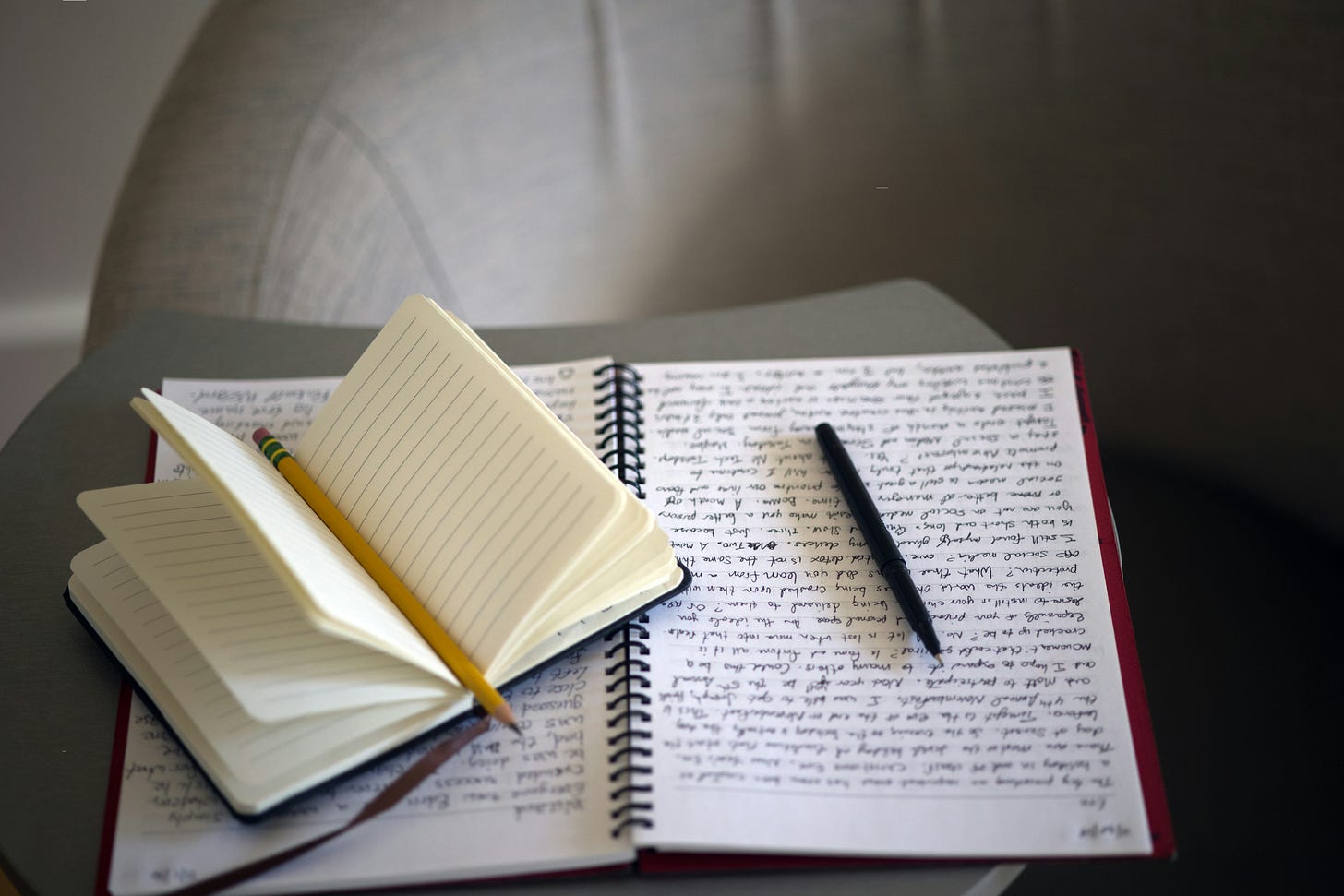A Return to Writing, Guest Appearances, and More
What I’ve Been Up To Since August
It’s been a while since I’ve posted here—my last piece went out in August 2024—and a lot has changed since then. I’ve been quiet on Substack, but it hasn’t been a quiet time. Behind the scenes, it’s been a time of movement, reflection, and steady work.
In September, my partner, our son, and I moved to Madison, Wisconsin. The shift has been grounding in ways I didn’t fully anticipate. I’ve been adjusting to a new environment and pace, and settling into a rhythm that allows for deeper creative focus. And in that time, I’ve written more than I expected—three papers, each a milestone in its own way.

The first was completing a manuscript that my friend and mentor, Frank Falk, left unfinished before his death in April 2023. It was based on his keynote from the 2022 Dąbrowski Congress. Before he died, he chose me for that task, and I took it seriously. I returned to his draft, his notes, and my own reflections from our time working together. It was a quiet, reverent process—an attempt to stay true to his voice while weaving in what I had come to understand about his view of Dąbrowski as an existential therapist. Finishing the paper felt like a way of honoring him and our friendship—of carrying forward what he started with care and respect.
The second paper grew out of my own keynote from the 2022 Dąbrowski Congress. Originally, that talk focused primarily on Michael M. Piechowski’s influence and our complicated mentorship. But when I sat down to turn it into a full paper, I realized I couldn’t leave Frank out. His mentorship had become just as formative—and just as important to the story of how I came to carry this work forward. The result was a deeply personal piece about mentors, meaning, and metamorphosis. It weaves together my own trajectory, their histories, and a call for reframing Dąbrowski’s work beyond the gifted label and into wider conversations about neurodivergence, mental health, and transformation. Both of these papers will be published later this year in Advanced Development Journal.
The third paper builds on both of those earlier works. It introduces the method I’ve been developing for over a decade—relational–developmental autoethnography (RDA). In many ways, it brings the threads together: the recursive self-inquiry that helped me make sense of intensity and inner conflict, the ethical complexities of writing about lived relationships, and the structure of psychological transformation through Dąbrowski’s theory.
I’ll be presenting the RDA paper next month at the Society for Qualitative Inquiry in Psychology (SQIP) conference at Marquette University (July 18-19, 2025). It’s the most methodologically detailed piece I’ve written so far, and it marks a turning point—offering RDA as a rigorous framework for others seeking to trace development through personal archives, reflection, and emotional engagement.
Guest Appearances
I’ve also had the chance to share my work on two podcasts that meant a lot to me—Neurodivergent Mums with Sabrina Dominguez and AuDHD Flourishing with Mattia Maurée. Those conversations reminded me why this work matters. There’s something about speaking into a space where your complexity is understood that makes you want to keep going.
Direct links to the episodes:
AuDHD Flourishing: Gifted Development & Positive Disintegration
In this wide-ranging conversation, I shared my journey from misdiagnosis and early suicidality to discovering Kazimierz Dąbrowski’s theory of positive disintegration (TPD), which offered a transformative alternative to the pathology paradigm. We talked about how emotional intensity and existential depth are often misunderstood as illness, especially in gifted or neurodivergent individuals, and how embracing complexity, autonomy, and authenticity can lead to healing. I also spoke about PDA (Pervasive Drive for Autonomy, aka Pathological Demand Avoidance), my relationship to giftedness, my rich inner world, and how writing and autoethnography helped me reclaim my story. It was a deep and affirming exchange on identity, intensity, and the power of reframing our differences.
Neurodivergent Mums: Breaking to Become. The Power of Positive Disintegration.
In this heartfelt episode, I spoke with Sabrina about my journey from psychiatric misdiagnosis to discovering TPD, and how it reshaped my understanding of intensity, identity, and neurodivergence. We explored the overlapping experiences of overexcitability, sensory processing, and emotion regulation, and how TPD reframes these traits not as deficits but as potential for growth. I shared how personal and family experiences informed my work, and we discussed the need for research that bridges giftedness, autism, and ADHD. We also talked about my role with the Dąbrowski Center, the launch of the Positive Disintegration Network, and the importance of creating neurodivergent-affirming spaces for community, education, and self-understanding.
Two New Shows
Last but not least, the Positive Disintegration Network has created two new podcasts in 2025: cosmic cheer squad and PDA: Resistance and Resilience.
I’m co-hosting cosmic cheer squad with my friend, bee mayhew, from pragmination, and our first episode came out on April 21, 2025.
PDA: Resistance and Resilience is co-hosted with my friend, Marni Kammersell, from Wandering Brightly. Episode one launches on Tuesday, June 17, 2025. Subscribe on Substack now to catch our premiere.
I have more to share—about the research, about what’s unfolding behind the scenes, and about how all of it fits together. Thank you for being here and for your patience while I’ve been away. I’m back, and I’m ready to write again.



All of this is so exciting to hear… there have been whispers about and it’s wonderful to see them coming into clear fidelity. Your voice, both written and spoken, is a helpful and affirming guide to many who are navigating stormy paths. And also calmer ones!
Welcome back, Chris! I look forward to getting myself back into seeing what you've been up to. Lots of changes in my life, too, this past year ... and you can still visit!